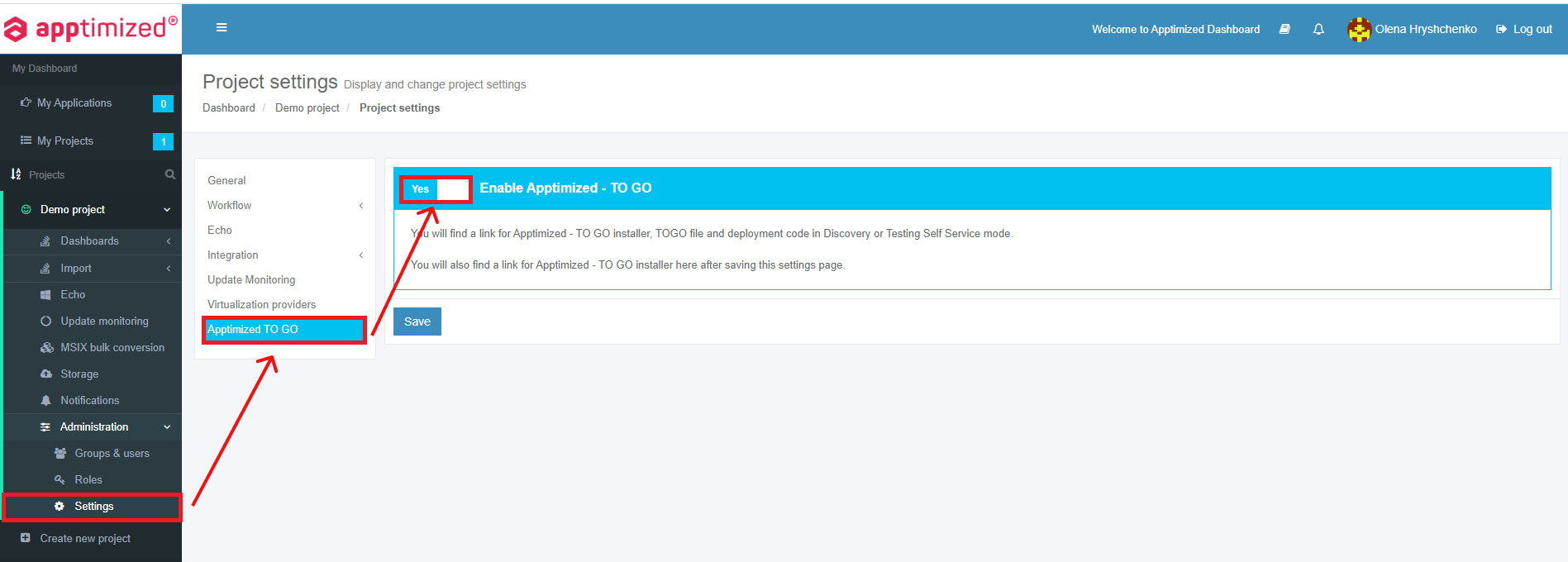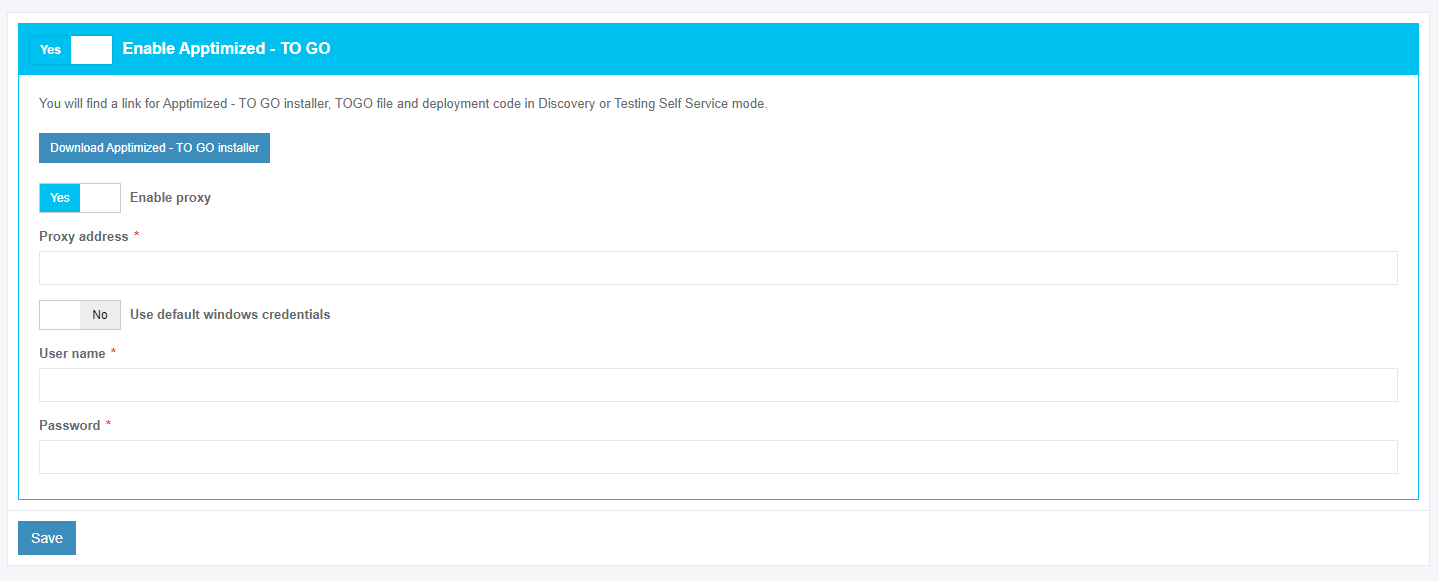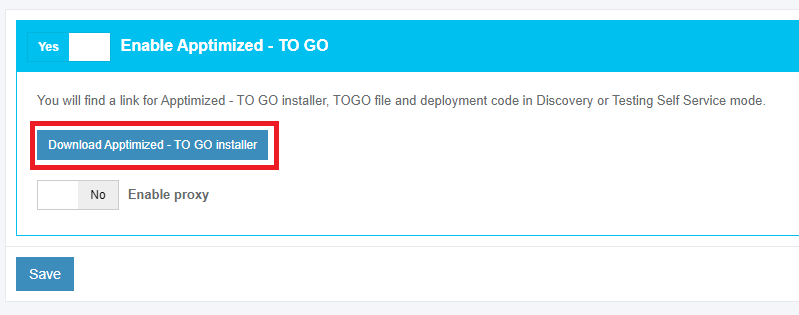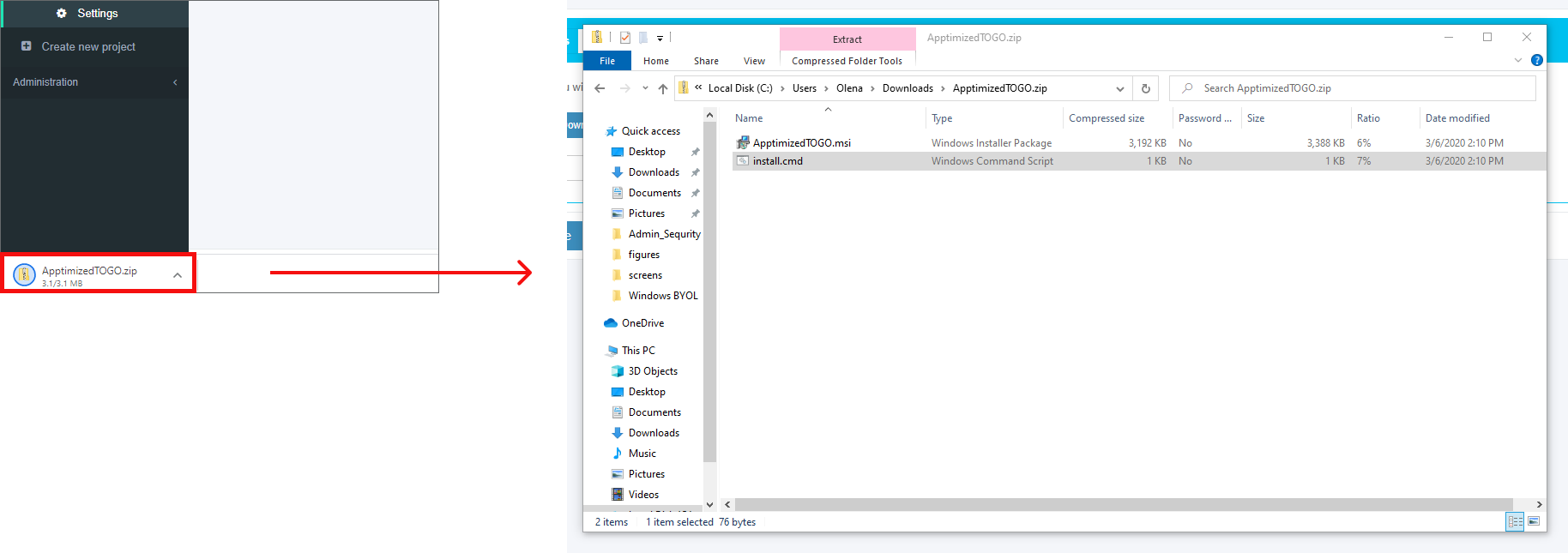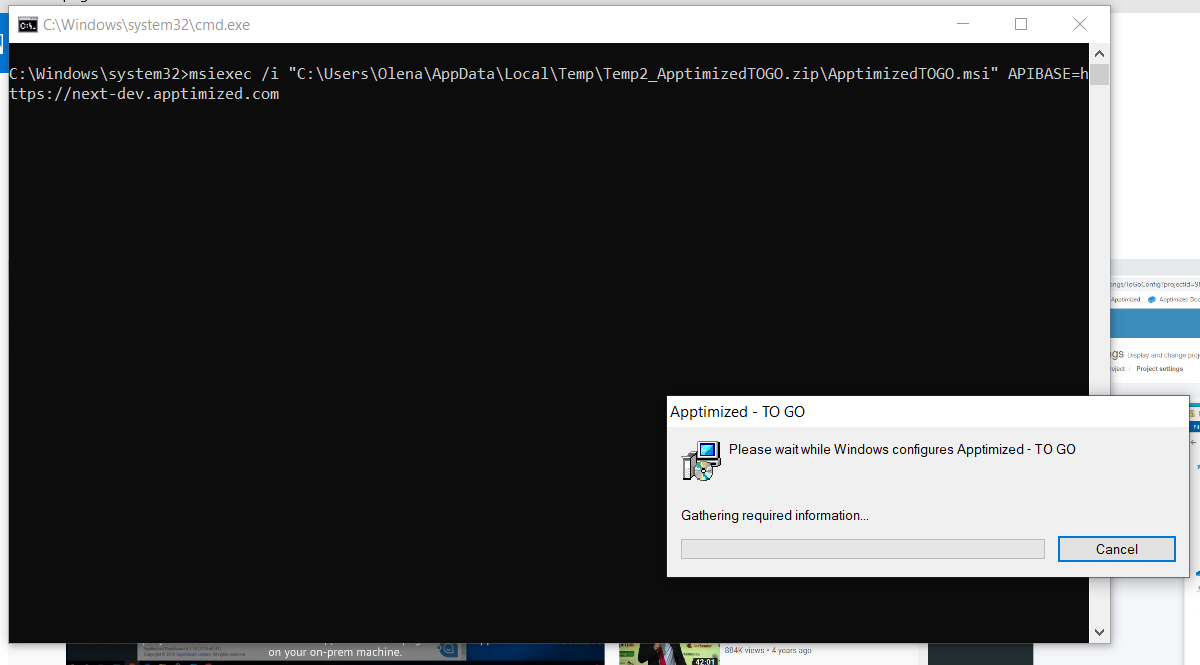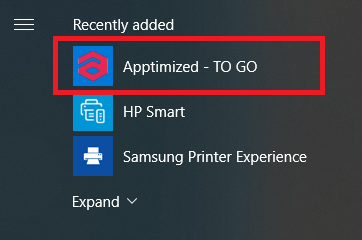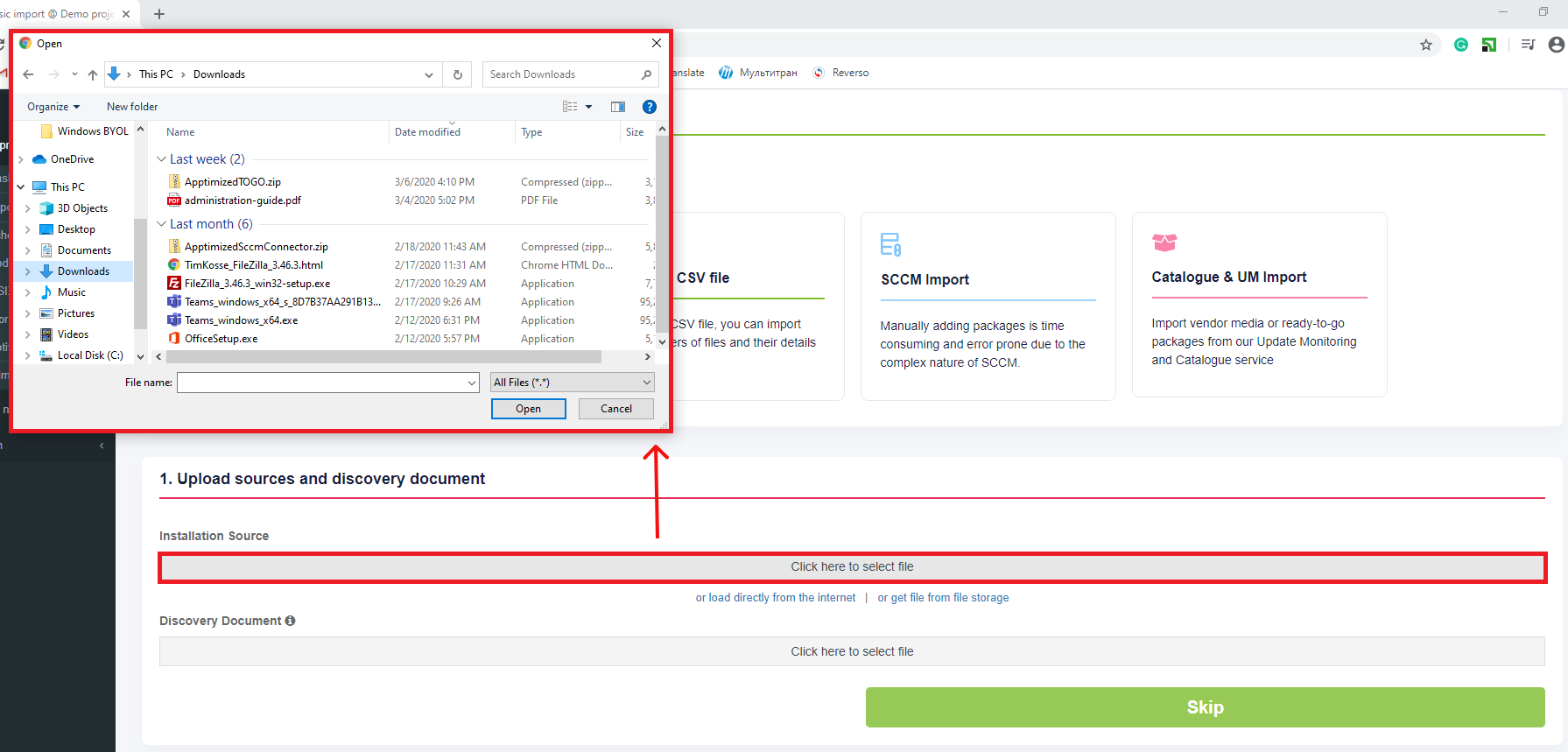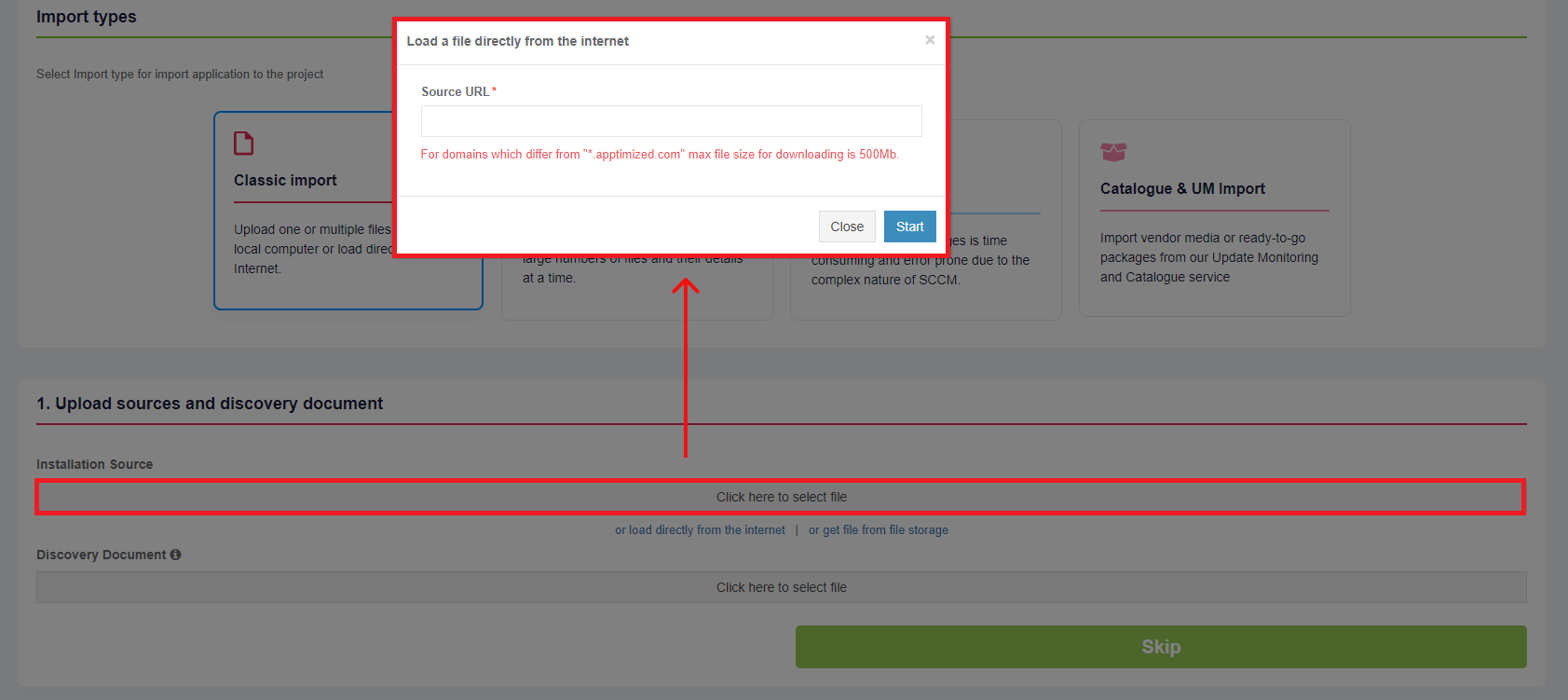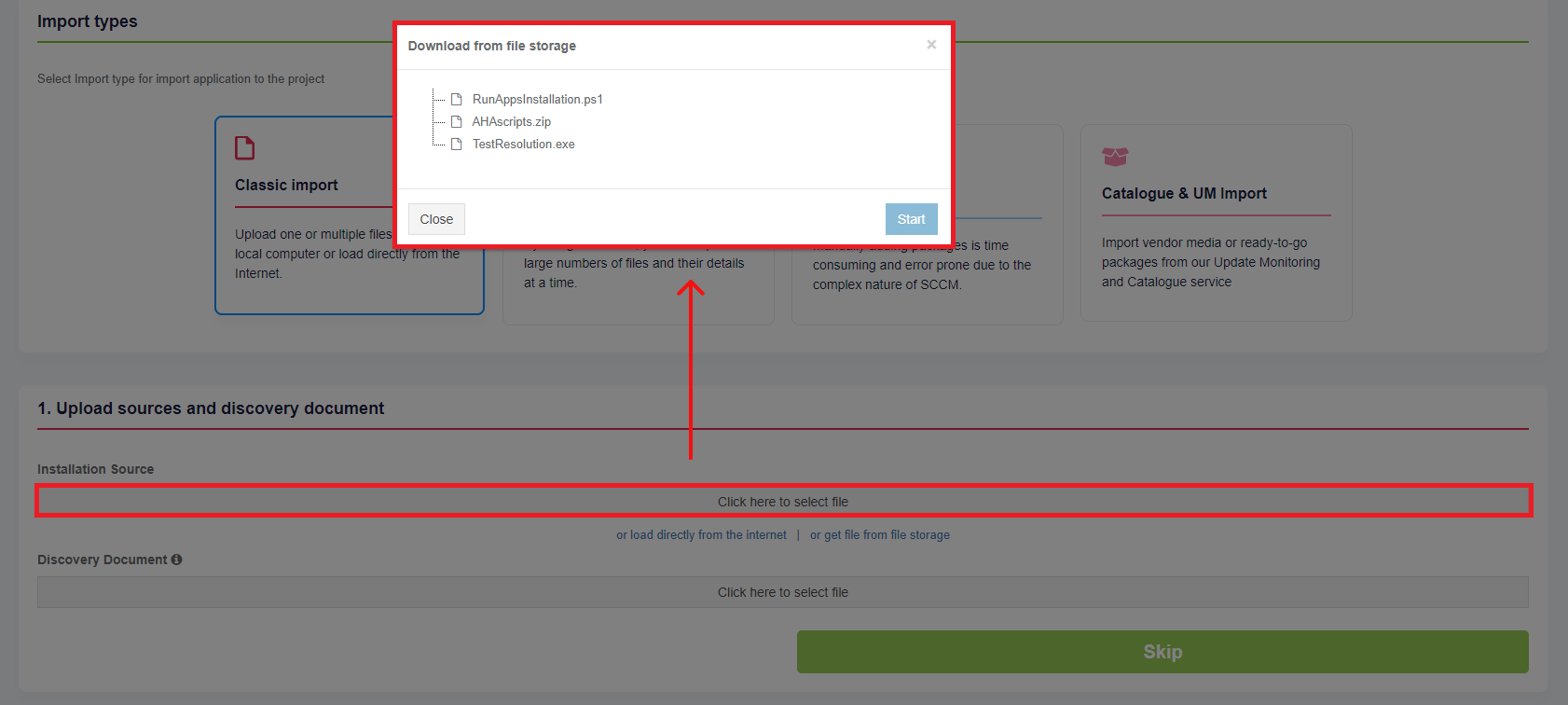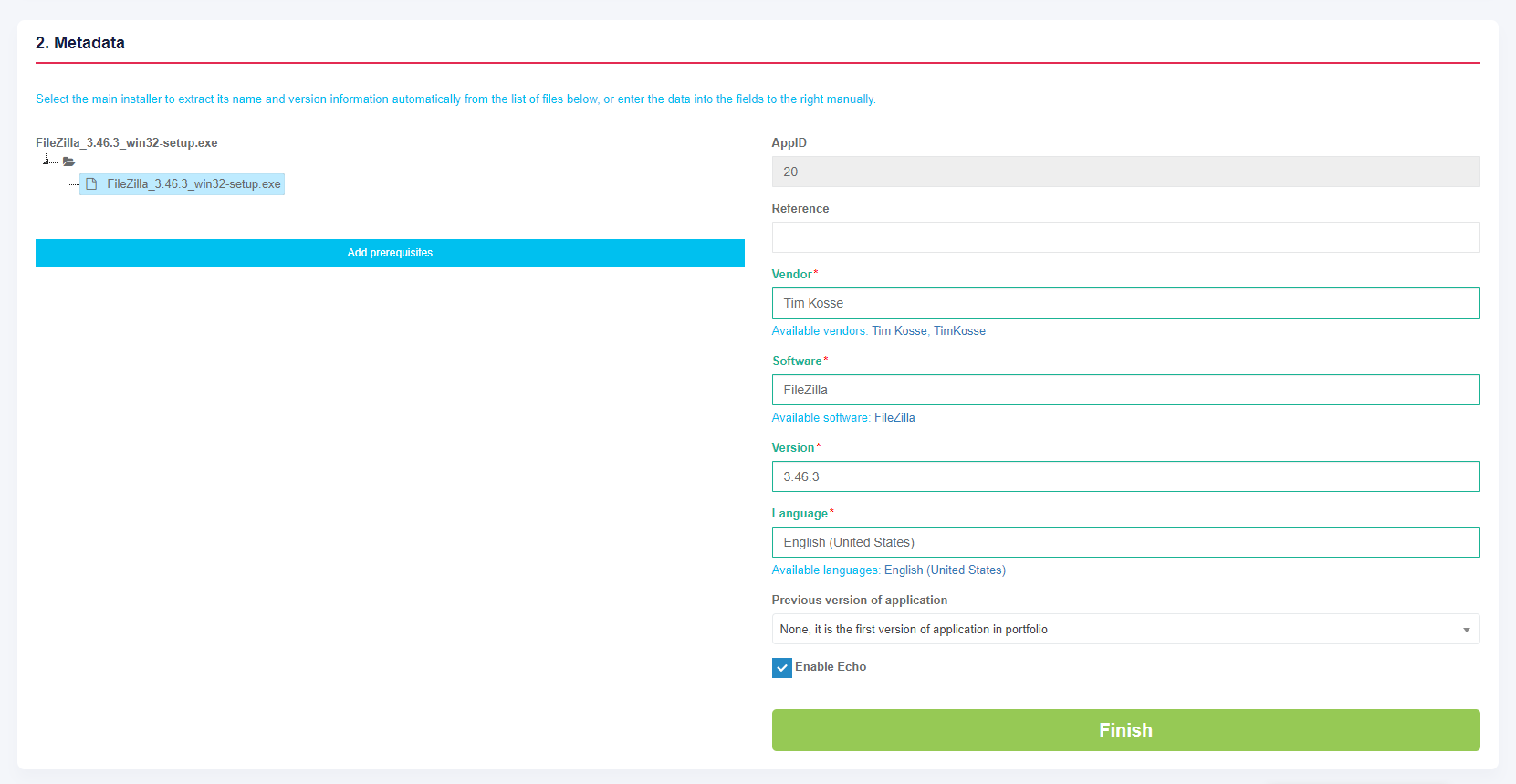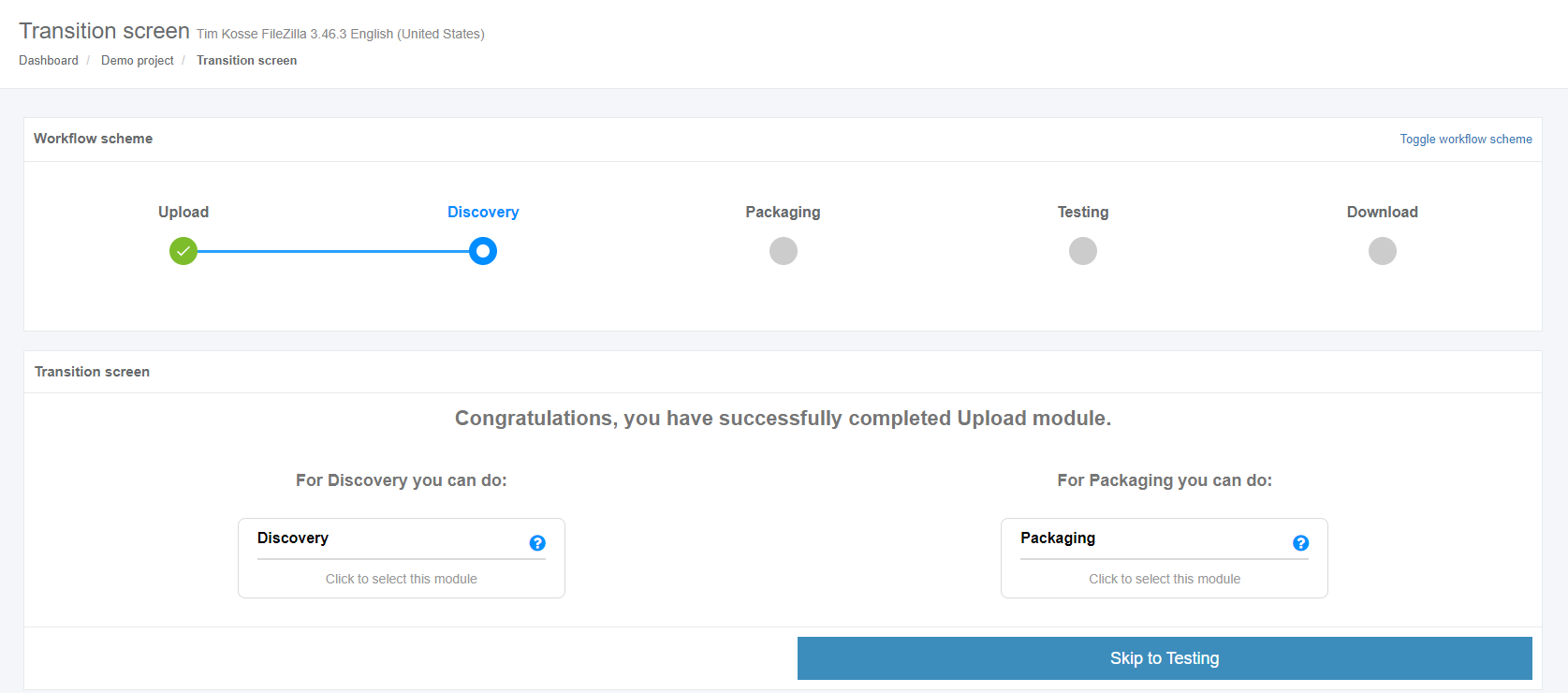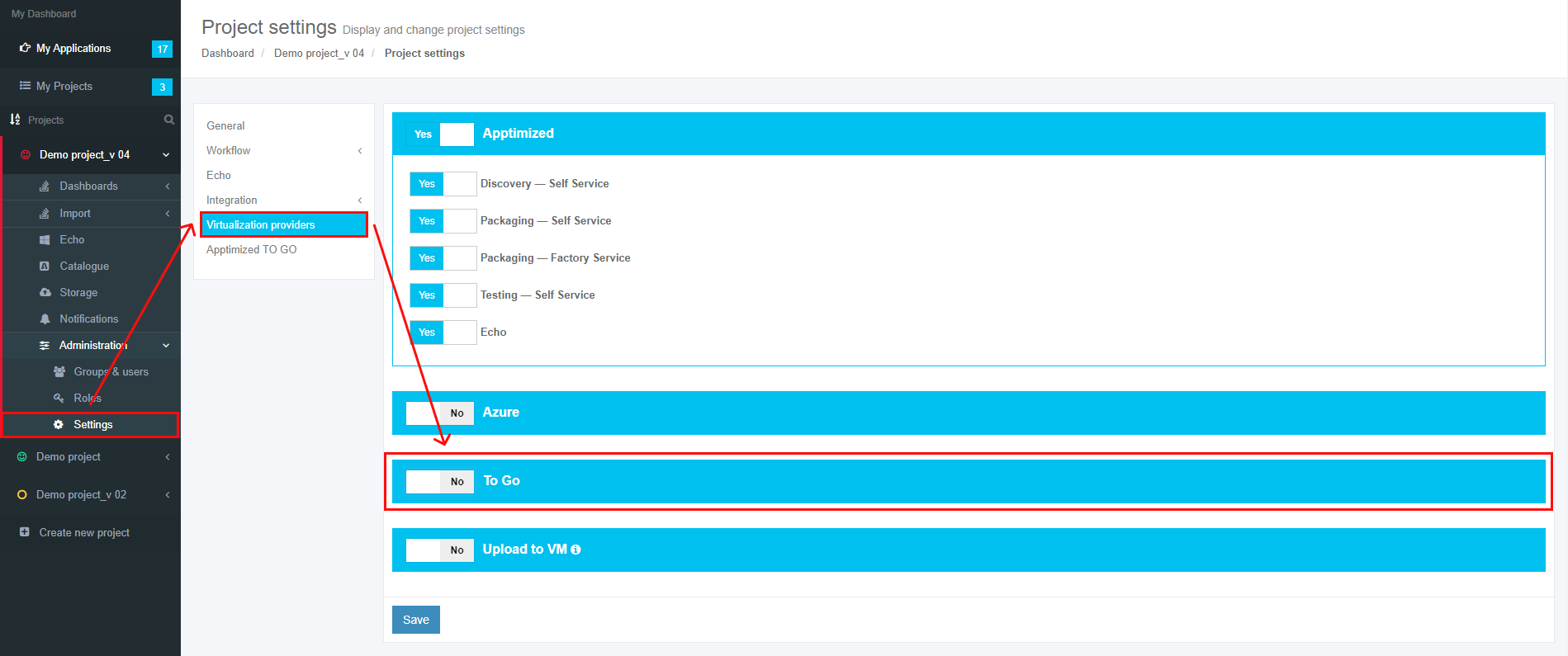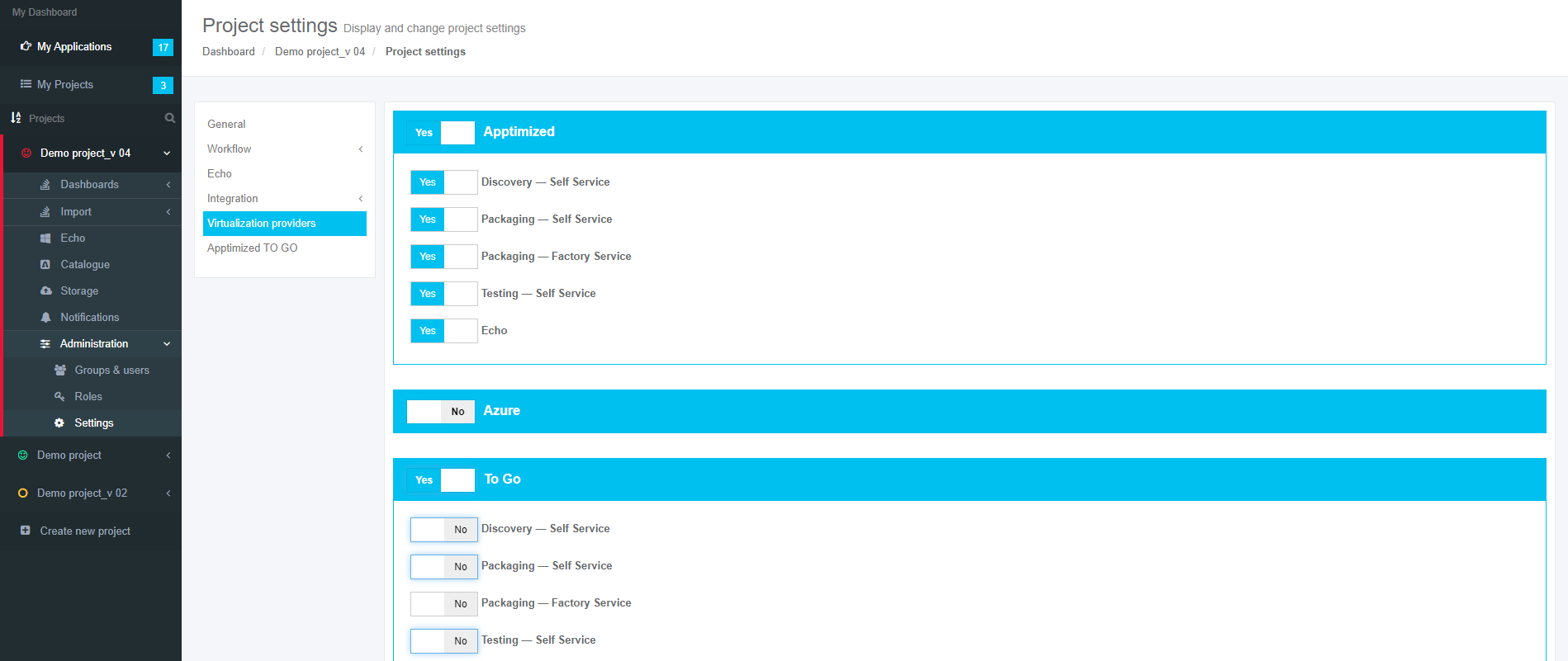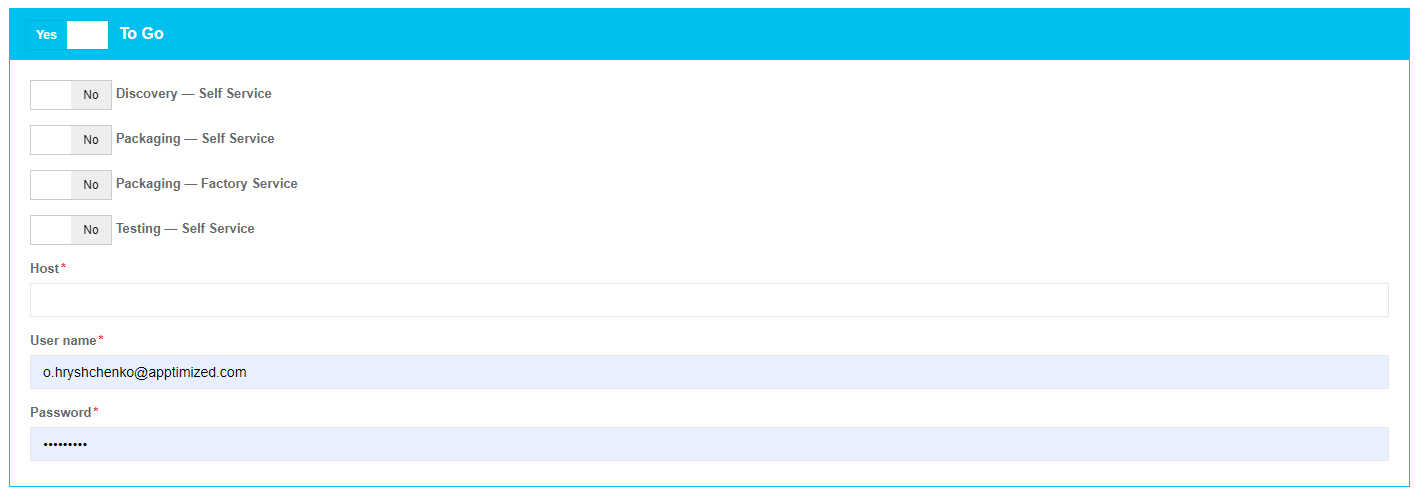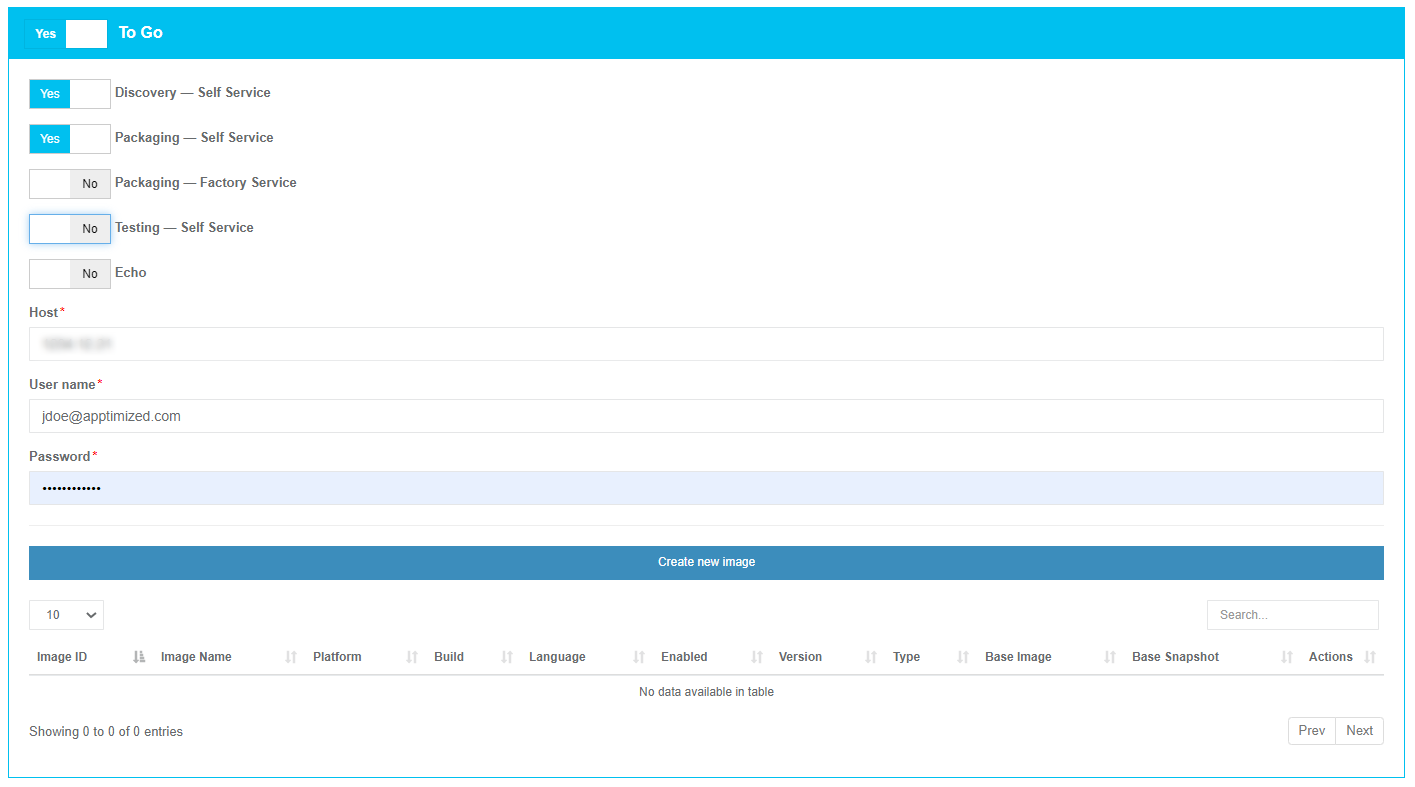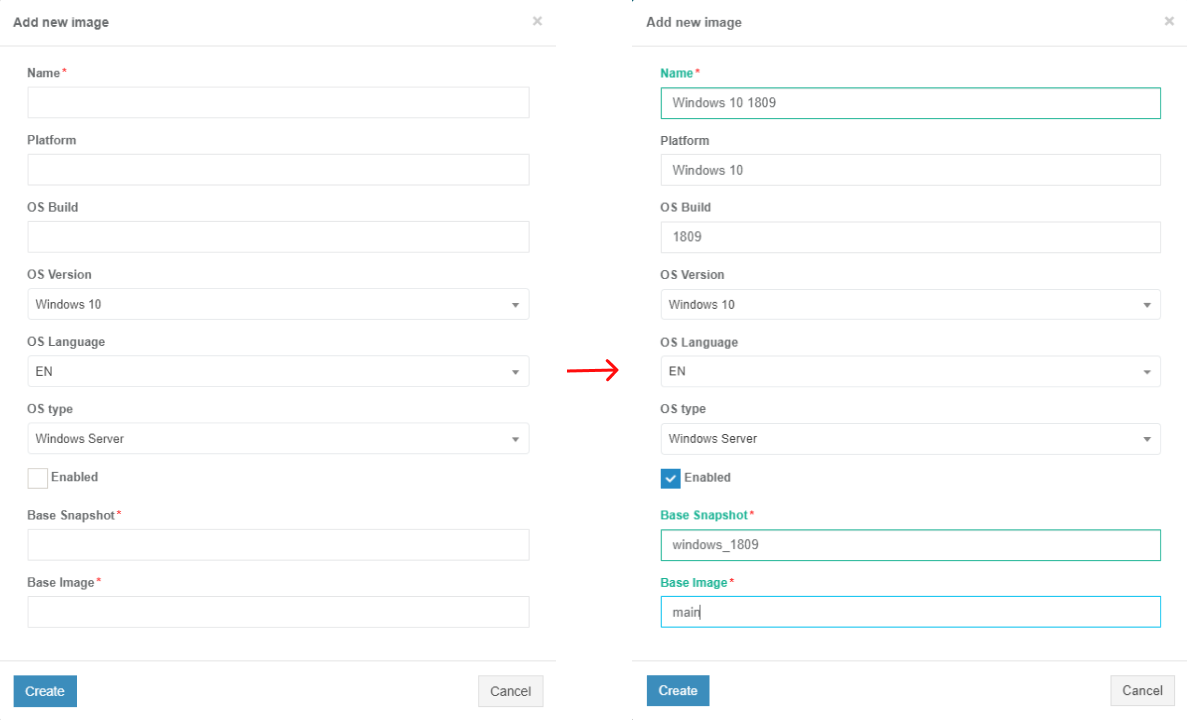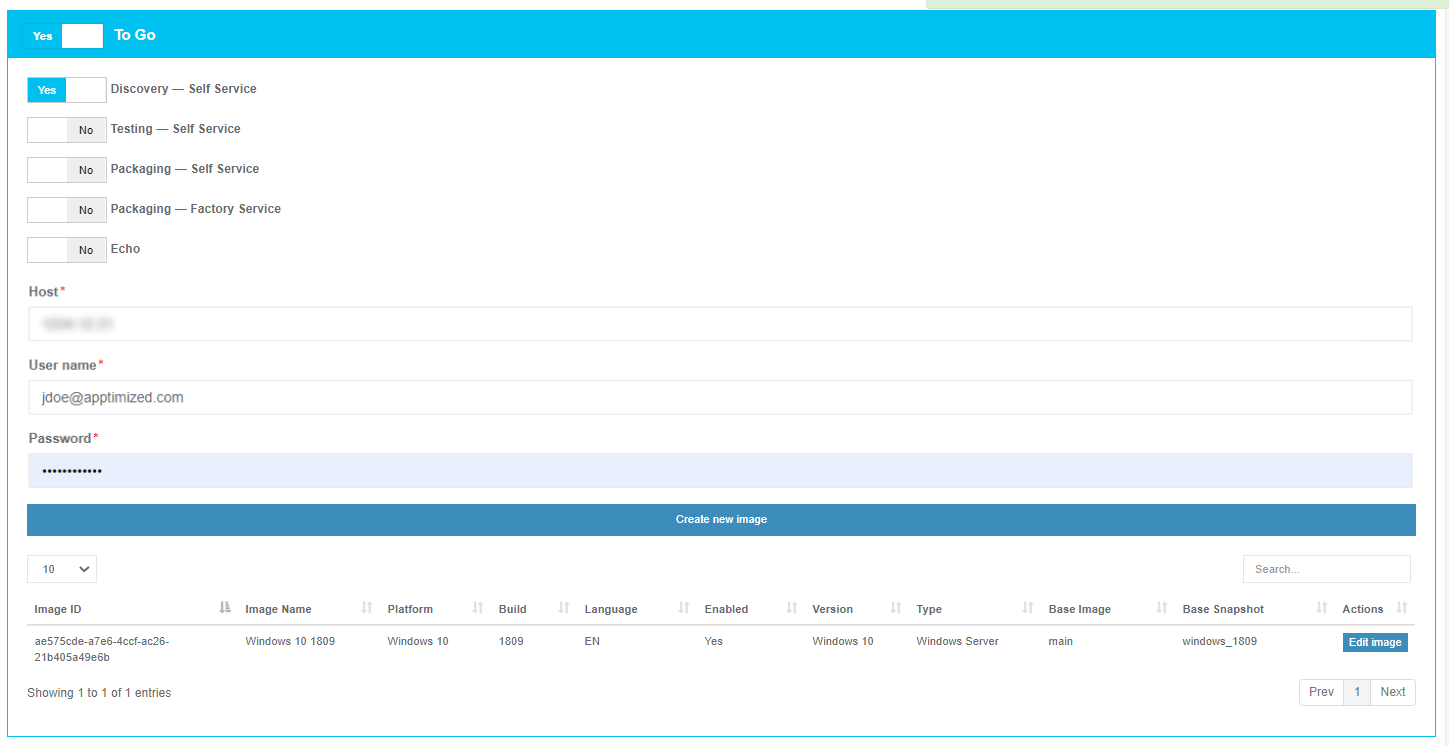Apptimized TO GO Agent integration
Enable Apptimized TO GO agent
The one-time configuration is available for project administrators under Settings in the project menu > Apptimized TO GO section. Apptimized - TO GO becomes active when switched on.
Settings are persisted on click to Save button.
If the endpoint connects to the internet via the proxy server, configure the connection by turning on Enable proxy and selecting Use default windows credentials or providing credentials in Username and Password fields.
Settings are persisted on click to Save button.
In case of success, Apptimized shows the following notification:
Apptimized TO GO agent installer
The integration procedure ends up with the installation of Apptimized TO GO Agent to the endpoint PC.
The installer is available for project administrators under Settings in project menu > Apptimized TO GO section > Download Apptimized - TO GO installer button.
The installer comes compressed in the ApptimizedTOGO.zip archive.
Installation starts by launching install.cmd.
Apptimized TO GO agent installs silently and takes few minutes to complete.
Apptimized TO GO agent launches from the Start menu:
Application import
To run the Discovery or Testing process via Apptimized TO GO the application must be imported to the project.
The option to start the import is called “Classic import”. It is available under Import in project menu > Start Import section > Classic import option.
The initial preparation process may take a while. In case of success, Apptimized shows the Upload sources and discovery document step.
Three options to upload Installation Source are available:
- Upload application file from customer's PC;
- Upload application file from the Internet;
- Upload application file from the file storage.
The Installation Source uploading progress is shown as follows:
The uploading time depends on the application's size. When the download of the application is completed, the customer can start uploading another application. Five application uploads are available for one session.
Uploading Discovery Document is optional. A discovery document can be generated in previous sessions.
One discovery document upload is available for one session.
The Upload sources and discovery document step finalizes by clicking on the Next button.
Apptimized shows the Metadata step when successful.
The process reverts to the previous step by clicking on the Upload sources and discovery document button.
To extract the application metadata automatically a customer can select the main installer from the list on the left or can enter the metadata manually into the fields on the right. All required fields have * in front of their label.
The following metadata will be provided:
Table 1. Application metadata
|
Metadata |
Details |
|
Application ID |
The application ID is a unique identifier generated automatically for every application during its upload. Application ID provides application identification. |
|
Reference |
This field is optional and can stay blank. This field provides additional comments from a customer to the Apptimized portal (i.e. internal application ID). |
|
Vendor |
This field defines the vendor name (i.e. Tim Kosse). This is a required field. |
|
Software |
This field defines the application name (i.e. FileZilla). This is a required field. |
|
Version |
This field defines the application version (i.e. 3.46.3). This is a required field. |
|
Language |
This field defines the application language (i.e. English (United States)). This is a required field. |
|
A previous version of an application |
This field defines if the previous version of the application is available in the portfolio. The default value is None, it is the first version of the application in the portfolio. A click opens a dropdown list to select the previous version of the application from the list. |
|
Enable Echo |
This option defines if Echo is needed to be enabled. The Echo is enabled by default. |
The prerequisites can be added by clicking on the Add prerequisites button.
A prerequisite may be a specific application that must be installed before the target application.
A field "Select media type for …" is filled automatically can be changed if needed.
A prerequisite is added by clicking on the Save button. Apptimized shows the following notification when successful:
Current prerequisites can be changed by clicking on the Edit prerequisites button and by following the same set of operations as for adding a prerequisite.
The Metadata step finalizes by clicking on the Finish button.
A Transition screen for application immediately appears where the Workflow scheme and modalities for interaction with the application (namely discovery, packaging, testing) are available.
Apptimized TO GO can be used only for Discovery and Testing.
Enable Apptimized TO GO hypervisor connector
The one-time configuration is available for project administrators under Settings in the project menu > Virtualization providers option > To Go switch.
Apptimized shows the following screen when successful:
The To Go switch enables the TO GO hypervisor connector implementation within the project.
The option to specify within what workflow step the TO GO hypervisor connector will be implemented enables when the switch is activated in front of the step name.
The User name and Password fields come prefilled.
The Host field defines the IP address or DNS name of a resource that contains Virtual Machines (i.e., 10.159.11.2:1233 or somesite.hive.com).
When the value to the Host field is added, the Create new image button appears.
The option to create a custom operating system image is available under the Create new image button. Apptimized shows the following modal window (all required fields are marked with an asterisk *):
The created custom operating system image must contain the installed TO GO agent. Otherwise, the VM will not be available via a virtual desktop environment using the RDP proxy server. The VM becomes in the ready status when TO GO agent sends a request to the Apptimized Portal to receive the manifest.
Table 2. Image settings
|
|
|
|
|
|
|
|
|
|
|
|
|
|
|
|
| |
|
The custom operating system image settings apply when clicking on the Create button. Apptimized shows the following screen when successful:
The option to modify the custom operating system image settings is available under the Edit image button.
Note. When the TO GO hypervisor connector option is implemented for the project, a customer receives the full scope of the Apptimized discovery and testing functionality on VMs with the custom operating system image.

